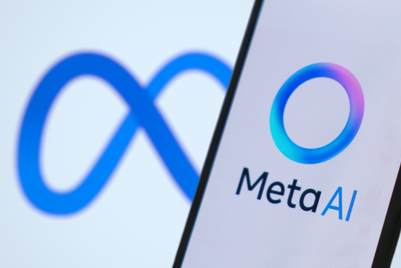
| PARTNER CONTENT |
2017 was an eventful year for Gridsum. Its business department served more than 400 customers and brands, including Volkswagen, Amazon, Hewlett-Packard and Samsung, and won several new clients as well, including Vipshop, Lululemon and China Southern Airlines.
As a leader in digital intelligence, the company’s mission is to help enterprises and government organizations in China use data in new and powerful ways, and its core technology—the Gridsum Big Data Platform—is built on a distributed computing framework, performing real-time, multi-dimensional correlation analysis of both structured and unstructured data.
What sets Gridsum a head above the competition is clearly its proprietary technology. Unlike many purported tech trailblazers who, in reality, rely on others’ infrastructure, Gridsum understands and implements their innovation at a grass-roots level. More than 90 software copyrights and over 2,200 patent applications currently sit under the company’s umbrella, with around 200 patents related to AI and 580 involving big data.
Aaron Li, co-president at Gridsum, is optimistic that this intellectual property ownership mixed with on-the-ground experience makes all the difference. “The most important thing for us is to solve clients’ topline problems. This is a matter of solid practice, and it takes time. We have more than a decade’s experience in big data, not only ad data but backend, search, social and natural language data as well. This allows us to help customers plan in advance.”
Li joined the company in 2009 and heads up the sales of Gridsum’s products and solutions, including innovative technologies and digital marketing tools. Last year, Gridsum launched an intelligent CRM solution and AI engine, Gridsum Prophet, greatly empowering the company’s products and solutions including marketing automation suites with artificial intelligence. “For enterprise-focused AI, we saw the opportunity to drive value for our clients and are leading the market”, says Li. “Just like big data in earlier years, it required a lot of data to build. The system is the result of years of practice involving machine learning, natural language processing, image recognition, predictive industry modelling and Knowledge Graph mapping.” Gridsum Prophet works across the matrix of client and industry verticals, and notably magnifies the company’s insight of cross-industry, client and demographic correlations.
Looking ahead
Gridsum’s goals in enterprise solutions moving forward are vast, but can be partitioned into four distinct elements, which Li also believes will apply industry-wide. The first is the integration of technology, consulting and advertising using software solutions and AI. The three industries are comingling more and more, and staying abreast in these uncharted waters means understanding how to integrate resources, and avoid pigeonholing projects.
The second objective relates more to media, Li explains. “The era of marketing competition has begun to shift from fighting for channels to competing on content. Useful, meaningful content is increasingly valuable. It’s becoming part of marketers’ DNA.”
Brands are also in need of more customised services, requiring partners to understand their industries in more subtle ways. Gridsum plans to tap into this necessity, doing away with run-of-the-mill solutions. For example, the company’s enterprise business group recently established several subset business units aiming to solve problems in specific business arenas through more professional process management. With plans to strengthen their presence in various industries, these trends will likely gain ground in the future.
Finally, the aforementioned focus on data is only going to grow and creating value through this data is key. “For many enterprises, big data has become a burden”, says Li. “Acquiring data isn’t easy. But we help clients solve these issues, and something they all come to realise over time is that data is equal to resources.”



.jpg&h=334&w=500&q=100&v=20250320&c=1)

.jpg&h=334&w=500&q=100&v=20250320&c=1)
.jpg&h=334&w=500&q=100&v=20250320&c=1)


.png&h=334&w=500&q=100&v=20250320&c=1)

.png&h=334&w=500&q=100&v=20250320&c=1)
.jpg&h=268&w=401&q=100&v=20250320&c=1)






